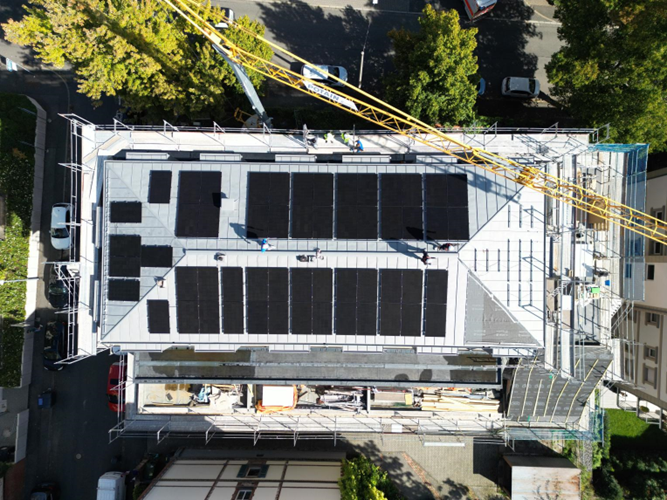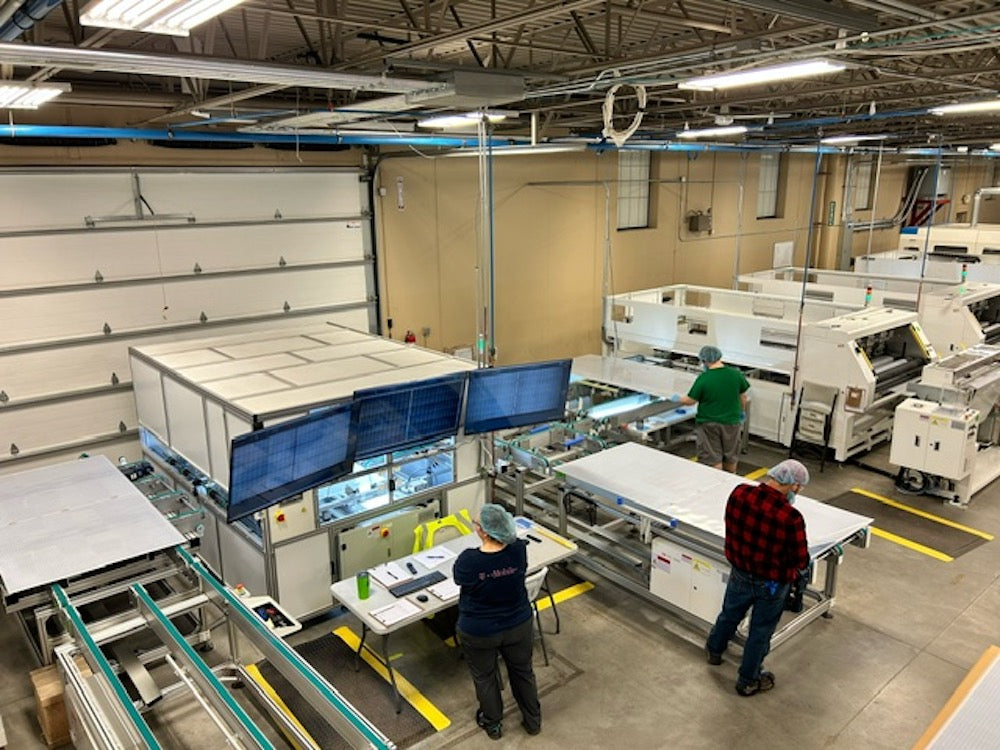https://pv-magazine-usa.com/2024/08/19/u-s-solar-car-race-success-for-two-canadian-teams/
U.S. solar car race success for two Canadian teams

Image: Projet Esteban, Voiture Solaire
From pv magazine Global
Student solar car teams from Canada’s Polytechnique Montréal and École de technologie supérieure made it to the podium at the Electrek American Solar Challenge 2024, a distance-based competition for solar cars.
With a multiple occupant vehicle (MOV) named Esteban 11, students from Polytechnique Montréal won first place in the MOV category in both the qualifier circuit race, known as the Electrek Formula Sun Grand Prix (FSGP) and in the main race, the Electrek American Solar Challenge, which requires completing a minimum of 1,500 miles (2,400 km).
The Esteban team completed 1,610.3 miles at an average speed of 36.2 mph (58.26 km/h), with an overall score of 73.86. The MOV category is scored on factors beyond the distance covered, such as practicality, amount of external energy used, and whether the 35 mph target average speed was maintained.
The other Montreal team, hailing from École de technologie supérieure, won silver in the single occupant vehicle (SOV) category, completing 2,004.5 miles with the Éclipse XI solar car. The SOV class is scored solely on miles driven. Only in the event of a tie is elapsed time relevant.
This year’s winner of the SOV class was the University of Michigan student team with its Astrum solar car, completing 2,095.5 miles (3,372 km) with an average speed of 37.51 mph.
Esteban 11 by the Polytechnique Montréal student team
The Esteban project spokesperson told pv magazine that the team began competing with a two-seater MOV in 2019. “Switching categories allowed us for more creativity in our design. Being multiple occupants also displays the efficiency of our car. Especially in the event, the broader public gets to learn how the technology evolves,” said the Esteban spokesperson.
The team used a 1218 W solar array with cells from Singapore-based Maxeon and encapsulation by German specialist PV panel manufacturer OPES Solutions. The 4-wheel vehicle weighed 293 kg, measuring 4.92m x 1.8m x 1.04 m. The battery was a 9.2 kWh by China-based BAK Technologies, weighing 47 kg, paired with two 5kW M2096D-3 hub motors from Japan’s Mitsuba in a carbon fiber monocoque.
“One great challenge we had was splitting the battery pack. This allowed us to have a lower center of gravity but complicated the monitoring and protection,” the spokesperson said, adding that a new printed circuit board design adhering to professional standards with features to manage heat effects also made a difference this year.
Éclipse XI by the École de technologie supérieure student team
The Éclipse XI, a 3-wheel design weighing 200 kg, measured 4.5 m x 1.5 m x 1.1 m. It was equipped with a 1000 W solar array spanning 4m2, based on Sunpower Maxeon Gen 3 solar cells. It had a 20 kg 5kWh lithium ion battery by Japanese manufacturer Panasonic.
The Éclipse XI team not only won a silver medal in the American Solar Challenge competition, it also won two awards, an Electrical Design Award, and the Abe Poot Award. The latter is named after an influential figure in the U.S. solar car racing community, that recognizes team spirit of collaboration and cooperation, according to the Éclipse XI team spokesperson.
The Electrical Design Award recognized the performance of the electrical setup. “At FSGP, we were the first team to complete both electrical and battery protection system inspection with all green status. We also proved that our electrical systems were robust and reliable along both races, more than 4500 km without any issue,” the Éclipse team spokesperson told pv magazine.
“For this race, we used a custom-made motor casing with air cooling system to help us climb the most steeped hills along the route,” they said, adding that the team is currently working on an improved maximum power point tracking that will “maximize efficiency across all operating ranges” to be able to reduce overall weight and cost.
The Electrek American Solar Challenge 2024 attracted over 30 student-run teams from the U.S. and Canada. It began on 20 July in Nashville, Tennessee, and ended in Casper, Wyoming, on 27 July. The primary route has 1562.2 total miles to complete and vehicles must average at least 35 mph for the event. There are seven optional loops to earn additional points.
This content is protected by copyright and may not be reused. If you want to cooperate with us and would like to reuse some of our content, please contact: editors@pv-magazine.com.



